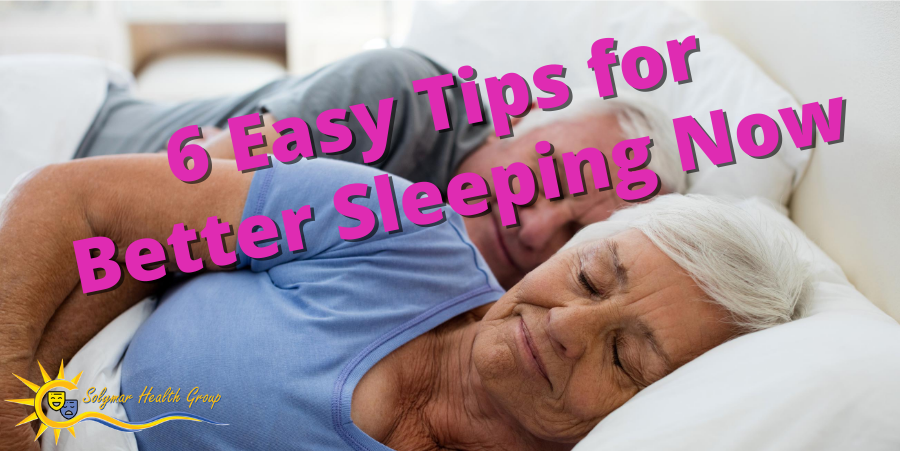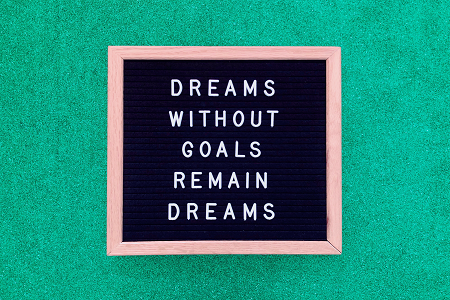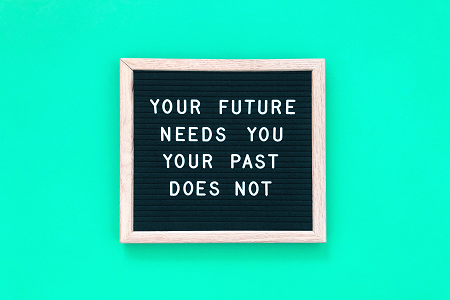Sleeping well directly affects your mental and physical health. If you fall short even just for a day or two nights, it can take a serious toll on your daytime energy, productivity, emotional balance, and even your weight. Even though people experiencing sleep loss identify with these symptoms, a troubling percentage of people still find themselves regularly deprived of quality sleep. So, why despite the fact that we know the importance of sleep, we continually place it as not a priority to our well being.
A good night’s sleep is just as important as regular exercise and a healthy diet. You have much more control over the quality of your sleep than you probably realize.
Recent research shows that poor sleep has immediate negative effects on your hormones, exercise performance, and brain function. It can be a contributing factor to weight gain and increase disease risk in both adults and children. Receiving a good night sleep can help you eat less, exercise better, and be healthier.
Over the past few decades, both sleep quality and quantity has declined and continues to decline. Many people report that they do NOT get regular sleep and when they are sleeping, they are not receiving a quality sleep. Not only this, most people do not have any kind of sleep routine to encourage a good sleeping pattern.
If you want to optimize your health or lose weight, getting a good night’s sleep is one of the most important things you can do.
How you feel in your waking hours, can contribute to how well you sleep at night. This means, if you are looking to improve your sleep, look at your daily routine. Often times, you can connect some of the daytime habits as contributing factors in your poor sleep quality.
Unhealthy daytime habits and lifestyle choices can leave you tossing and turning at night, thus, affecting your mood, brain and heart health, immune system, creativity, vitality, and weight. Try experimenting with the following tips. In doing so you will find that you enjoy better sleep at night, feel healthier,improve how you think and feel during the day and generally make better choices.
Here are 6 easy tips for helping you get better sleep. Stop hoping for a better night sleep. These tips will have you waking up ready to jump out of bed to face the new day!
It all starts with the acronym SLEEPY. This stands for Schedule, Light, Exercise, Eating, Pre-bed routine, and Your environment.
Tip 1: Schedule
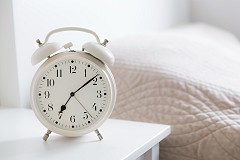
Taking control of your daily sleep schedule is the single most important step toward getting better sleep. Getting in sync with your body’s natural sleep-wake cycle, or circadian rhythm, is the secret to sleeping better. Your body’s circadian rhythm naturally aligns itself with sunrise and sunset. The closer you can stick to this natural cycle, the better your sleep will be.
When you keep a regular sleep-wake schedule, you’ll feel much more refreshed and energized than if you sleep the same number of hours at different times, even if you only alter your sleep schedule by an hour or two.
If you’re getting enough sleep, you should wake up naturally without an alarm. If you need an alarm clock, you may need an earlier bedtime.
Set a Fixed Wake-Up Time: It’s close to impossible for your body to get accustomed to a healthy sleep routine if you’re constantly waking up at different times. Pick a wake-up time and stick with it, even on weekends or other days when you would otherwise be tempted to sleep in. Being consistent reinforces your body's sleep-wake cycle.
By working out what time you need to wake up, you can set a regular bedtime schedule. Most adults need between 6 and 9 hours of sleep every night.
Avoid sleeping in-even on weekends. While it may seem like a good idea to try to catch up on sleep after a bad night, doing so on a regular basis can also disrupt your sleep routine. The more your weekend/weekday sleep schedules differ, the worse the jetlag-like symptoms you’ll experience. If you need to make up for a late night, opt for a daytime nap rather than sleeping in. This allows you to pay off your sleep debt without disturbing your natural sleep-wake rhythm.
While on the subject of napping, it's important to be smart about napping.
Sleeping in the daytime can confuse your internal clock, meaning that you may struggle to sleep at night.
While short power naps are beneficial and a good way to make up for lost sleep, long or irregular napping during the day can negatively affect your sleep.
If you nap for too long or too late in the day, it can throw off your sleep schedule and make it harder to get to sleep when you want to. The best time to nap is shortly after lunch in the early afternoon, and the best nap length is around 20 minutes.
In fact, one study noted that while napping for 30 minutes or less can enhance daytime brain function, longer naps can harm health and sleep quality.
Reserve Your Bed for Sleep and Sex Only: If you have a comfortable bed, you may be tempted to hang out there while doing all kinds of activities, but this can actually cause problems at bedtime. You want a strong mental association between your bed and sleep, so try to keep activities in your bed limited strictly to sleep and sex.
If you don't fall asleep within about 20 minutes, leave your bedroom and do something relaxing. Read or listen to soothing music. Go back to bed when you're tired. Repeat as needed.
Tip 2: Light
Melatonin is a naturally occurring hormone controlled by light exposure that helps regulate your sleep-wake cycle. Your brain secretes more melatonin when it’s dark-making you sleepy-and less when it’s light-making you more alert.

Our internal clocks are regulated by light exposure. Sunlight has the strongest effect, so try to take in daylight by getting outside or opening up windows or blinds to natural light. Getting a dose of daylight early in the day can help normalize your circadian rhythm. The closer to the time you get up, the better. Have your coffee outside, for example, or eat breakfast by a sunny window. The light on your face will help you wake up.
You should also try to spend more time outside during daylight. Take your work breaks outside in sunlight, exercise outside, or walk your dog during the day instead of at night.
Let as much natural light into your home or workspace as possible. Keep curtains and blinds open during the day, and try to move your desk closer to the window. If natural light isn’t an option, you can talk with your doctor about using a light therapy box. This simulates sunshine and can be especially useful during short winter days.
While bright light during the day help to keep you awake and alert, it does the same thing at night. This is why you should avoid bright screens within 1-2 hours of your bedtime. The blue light emitted by your phone, tablet, computer is especially disruptive. Particularly bad is TV. Not only does the light from a TV suppress melatonin, but many programs are stimulating rather than relaxing. Try listening to music or audio books instead.
Reading a real book is great, and an e-reader device is a good choice too. Don’t read with backlit devices though like tablets as they are more disruptive than e-readers that don’t have their own light source.
When it’s time to sleep, make sure the room is dark. Use heavy curtains or shades to block light from windows, or try a sleep mask. Also consider covering up electronics that emit light.
Keep the lights down if you get up during the night. If you need some light to move around safely, try installing a dim nightlight in the hall or bathroom or using a small flashlight. This will make it easier for you to fall back to sleep.
Tip 3: Exercise

Exercise is one of the best science-backed ways to improve your sleep and health. People who exercise regularly sleep better at night and feel less sleepy during the day. It can enhance all aspects of sleep and has been used to reduce symptoms of insomnia and sleep apnea and increases the amount of time you spend in the deep, restorative stages of sleep.
The more vigorously you exercise, the more powerful the sleep benefits. But even light exercise-such as walking for just 10 minutes a day-improves sleep quality.
One study in older adults determined that exercise nearly halved the amount of time it took to fall asleep and provided 41 more minutes of sleep at night. In people with severe insomnia, exercise offered more benefits than most drugs. Exercise reduced time to fall asleep by 55%, total night wakefulness by 30%, and anxiety by 15% while increasing total sleep time by 18%.
Although daily exercise is key for a good night’s sleep, performing it too late in the day may cause sleep problems. This is due to the stimulatory effect of exercise, which increases alertness and hormones like epinephrine and adrenaline.
It can take several months of regular activity before you experience the full sleep-promoting effects. So be patient and focus on building an exercise habit that sticks.
Tip 4: Eating
Eating habits, especially in the hours before bedtime, play a large role in how well you sleep. Don't go to bed hungry or stuffed. In particular, avoid heavy or large meals within a couple of hours of bedtime. Your discomfort might keep you up.
Eating late at night may negatively affect both sleep quality and the natural release of HGH and melatonin. Also it can be harder to fall asleep if your body is still digesting a big dinner. To keep food-based sleep disruptions to a minimum, try to make dinnertime earlier in the evening, and avoid heavy, rich foods within two hours of bed. Spicy or acidic foods can cause stomach trouble and heartburn.
Cut back on sugary foods and refined carbs. Eating lots of sugar and refined carbs such as white bread, white rice, and pasta during the day can trigger wakefulness at night and pull you out of the deep, restorative stages of sleep.
Caffeinated drinks, including coffee, tea, and sodas, are among the most popular beverages in the world. Some people are tempted to use the jolt of energy from caffeine to try to overcome daytime sleepiness, but that approach isn’t sustainable and can cause long-term sleep deprivation. To avoid this, keep an eye on your caffeine intake and avoid it later in the day when it can be a barrier to falling sleep. You might be surprised to know that caffeine can cause sleep problems up to ten to twelve hours after drinking it! In one study, consuming caffeine up to 6 hours before bed significantly worsened sleep quality.
Alcohol can induce drowsiness, so some people are keen on a nightcap before bed. Unfortunately, alcohol affects the brain in ways that can lower sleep quality, and for that reason, it’s best to avoid alcohol in the lead-up to bedtime.
Nicotine from smoking is another stimulant that can disrupt your sleep, especially if you smoke close to bedtime. Exposure to smoke, including secondhand smoke, has been associated with a range of sleeping problems including difficulty falling asleep and fragmented sleep.
Nocturia is the medical term for excessive urination during the night. It affects sleep quality and daytime energy. Drinking large amounts of liquids before bed can lead to similar symptoms, though some people are more sensitive than others. Although hydration is vital for your health, it’s wise to reduce your fluid intake in the late evening. Try to not drink any fluids 1-2 hours before going to bed. You should also use the bathroom right before going to bed, as this may decrease your chances of waking in the night.
Avoid drinking too many liquids in the evening. Drinking lots of fluids may result in frequent bathroom trips throughout the night.
For some people, a light snack before bed can help promote sleep. For others, eating before bed leads to indigestion and make sleeping more difficult. If you need an evening snack, opt for something light and healthy like:
- A small bowl of whole-grain, low-sugar cereal
- Milk or yogurt
- A banana
Tip 5: Pre-Bed Routine
| A deep breathing exercise to help you sleep |
|---|
|
Breathing from your belly rather than your chest can activate the relaxation response and lower your heart rate, blood pressure, and stress levels to help you drift off to sleep.
Follow along with a guided deep breathing exercise.
|
| A body scan exercise to help you sleep |
By focusing your attention on different parts of your body, you can identify where you’re holding any stress or tension, and release it.
A guided body scan meditation to help you wind down and clear your head at bedtime.
|
If you have a hard time falling asleep, it’s natural to think that the problem starts when you lie down in bed. In reality, though, the lead-up to bedtime plays a crucial role in preparing you to fall asleep quickly and effortlessly.
Poor pre-bed habits are a major contributor to insomnia and other sleep problems. Changing these habits can take time, but the effort can pay off by making you more relaxed and ready to fall asleep when bedtime rolls around.
Problems clearing you head at night can also stem from your daytime habits. The more overstimulated your brain becomes during the day, the harder it can be slow down and unwind at night. Maybe, like many of us, you’re constantly interrupting tasks during the day to check your phone, email, or social media. Then when it comes to getting to sleep at night, your brain is so accustomed to seeking fresh stimulation, it becomes difficult to unwind. Help yourself by setting aside specific times during the day for checking your phone and social media and, as much as possible, try to focus on one task at a time. You’ll be better able to calm your mind at bedtime.
Residual stress, worry, and anger from your day can make it very difficult to sleep well. Taking steps to manage your overall stress levels and learning how to curb the worry habit can make it easier to unwind at night.
Winding down is a critical stage in preparing for bed. Relaxation techniques before bed have been shown to improve sleep quality and are another common technique used to treat insomnia.
There are lots of ways to relax:
- a warm bath (not hot) will help your body reach a temperature that's ideal for rest. In one study, taking a hot bath 90 minutes before bed improved sleep quality and helped people get more deep sleep. Alternatively, if you don’t want to take a full bath at night, simply bathing your feet in hot water can help you relax and improve sleep.
- writing "to do" lists for the next day can organise your thoughts and clear your mind of any distractions
- relaxation exercises, such as light yoga stretches, help to relax the muscles. Do not exercise vigorously, as it will have the opposite effect
- relaxation CDs work by using a carefully narrated script, gentle hypnotic music and sound effects to relax you
- reading a book or listening to the radio relaxes the mind by distracting it
Try out different methods and find what works best for you.
As much as possible, try to create a consistent routine that you follow each night because this helps reinforce healthy habits and signals to mind and body that bedtime is approaching. As part of that routine, incorporate these three tips:
- Wind Down For At Least 30 Minutes: It’s much easier to doze off smoothly if you are at-ease. Quiet reading, low-impact stretching, listening to soothing music, and relaxation exercises are examples of ways to get into the right frame of mind for sleep.
- Lower the Lights: Avoiding bright light can help you transition to bedtime and contribute to your body’s production of melatonin, a hormone that promotes sleep.
- Disconnect From Devices: Tablets, cell phones, and laptops can keep your brain wired, making it hard to truly wind down. The light from these devices can also suppress your natural production of melatonin. As much as possible, try to disconnect for 30 minutes or more before going to bed.
A peaceful bedtime routine sends a powerful signal to your brain that it’s time to wind down and let go of the day’s stresses.
Tip 6: Your Environment
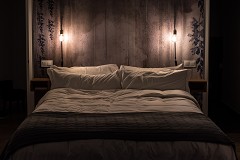
Your bedroom should be a relaxing environment. Create a room that's ideal for sleeping. Make your bedroom a place of comfort and relaxation. Though this might seem obvious, it’s often overlooked, contributing to difficulties getting to sleep and sleeping through the night.
In designing your sleep environment, focus maximizing comfort and minimizing distractions.
Sometimes even small changes to your environment can make a big difference to your quality of sleep.
- Keep your room dark, cool, and quiet
- Keep noise down. If you can’t avoid or eliminate noise from neighbors, traffic, or other people in your household, try masking it with a fan or sound machine. Earplugs may also help.
- Keep your room cool. Most people sleep best in a slightly cool room (between 18° and 24° C) with adequate ventilation. A bedroom that is too hot or too cold can interfere with quality sleep.
- Use a High-Performance Mattress and Pillow. A quality mattress is vital to making sure that you are comfortable enough to relax. If you often wake up with a sore back or an aching neck, you may need to experiment with different levels of mattress firmness, foam toppers, and pillows that provide more or less support. It’s recommended that you upgrade your bedding at least every 5-8 years. If you haven’t replaced your mattress or bedding for several years, this can be a very quick - although possibly expensive - fix. It also ensures, along with your pillow, that your spine gets proper support to avoid aches and pains. One study looked at the benefits of a new mattress for 28 days, revealing that it reduced back pain by 57%, shoulder pain by 60%, and back stiffness by 59%. It also improved sleep quality by 60%.
- Choose Quality Bedding: Your sheets and blankets play a major role in helping your bed feel inviting. Look for bedding that feels comfortable to the touch and that will help maintain a comfortable temperature during the night. Your bed covers should leave you enough room to stretch and turn comfortably without becoming tangled.
- Keep your bedroom just for sleep. By not working, watching TV, or using your phone, tablet, or computer in bed, your brain will associate the bedroom with just sleep, which makes it easier to wind down at night.
- Introduce Pleasant Aromas: A light scent that you find calming can help ease you into sleep. Essential oils with natural aromas, such as lavender, can provide a soothing and fresh smell for your bedroom.
Summary
In summary you will see that a lot of the ways to get better sleep fall to your schedule.
- Get up at the same time every day, including weekends.
- Have breakfast or coffee outdoors or next to a large window.
- Only nap in the early afternoon.
- No sugary foods, caffeinated beverages, alcohol or nicotine after mid afternoon.
- Eat a well balanced dinner early.
- Stick to your pre-bed routine, and relax.
You'll also find that with a daily schedule it will help to decrease stress and anxiety. So create one, and stick to it.

